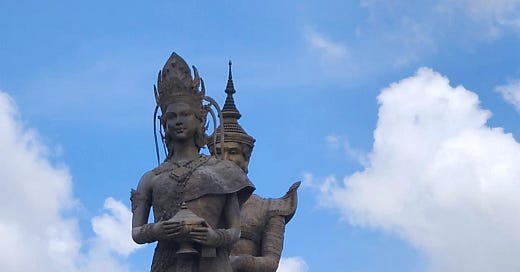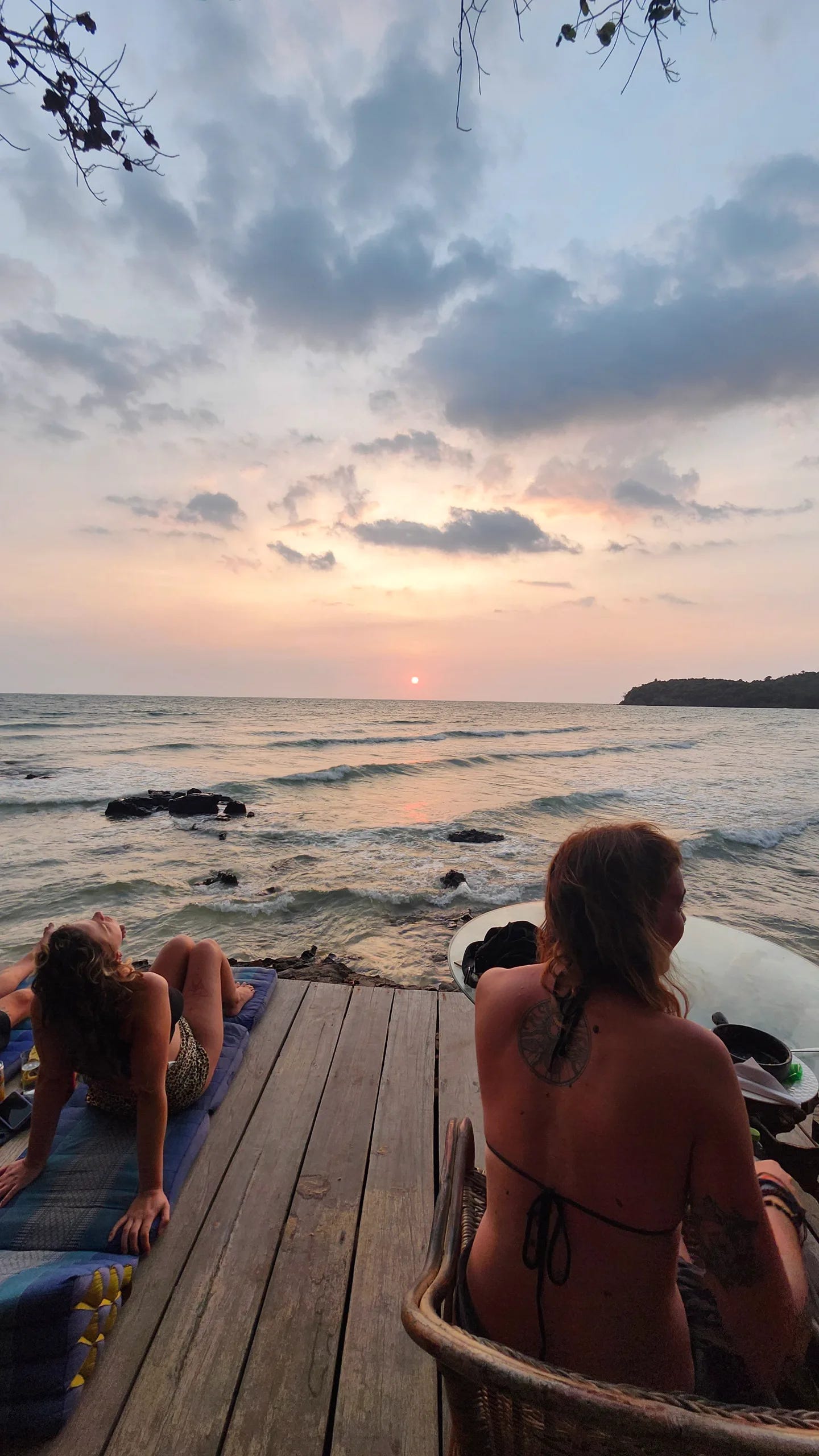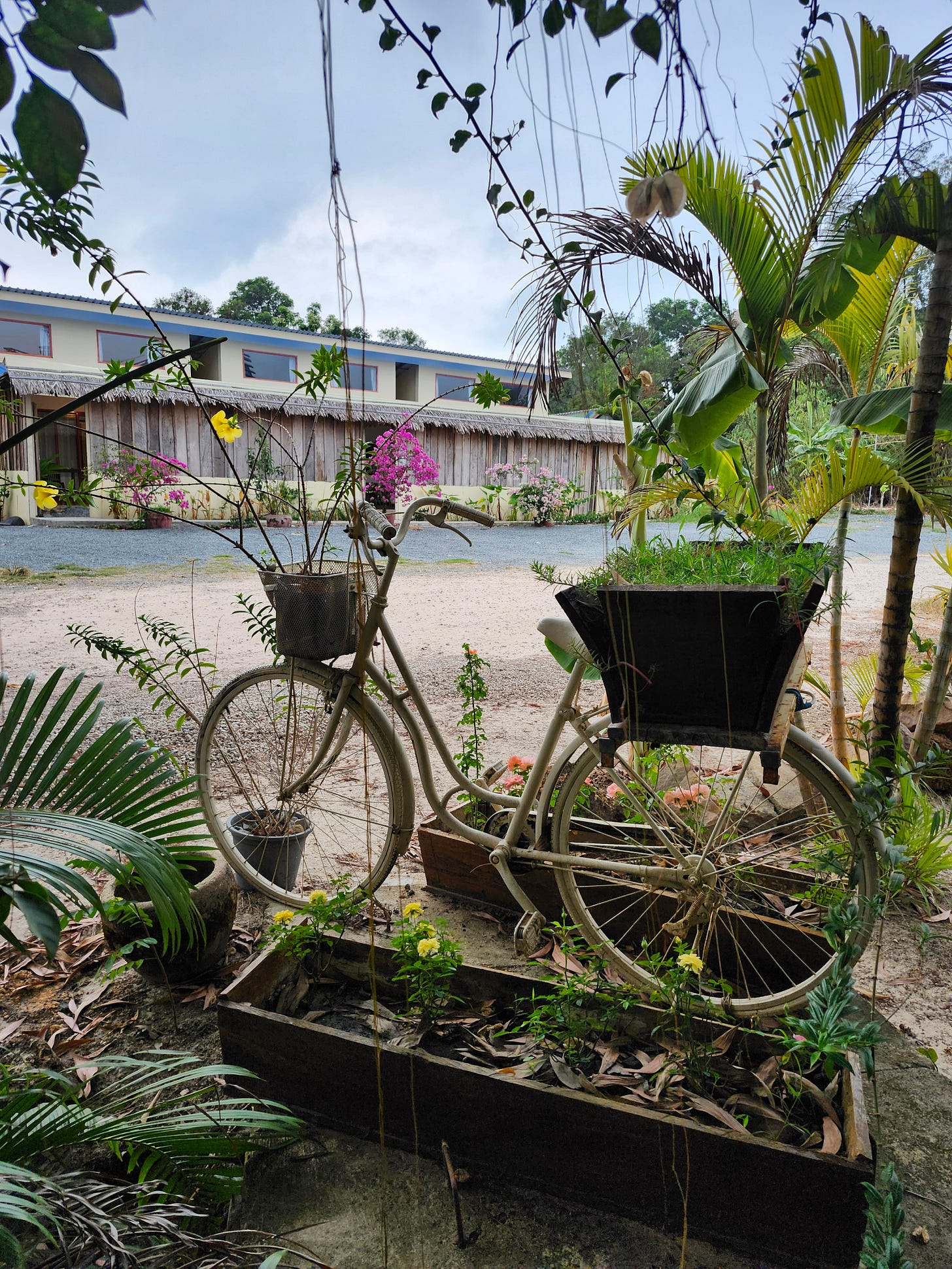Cambodians do not raise their voices. It is literally against their religion. I learned this when I first visited Cambodia in 2018. They greet you with a prayer bow called Som Pas: head inclined forward, hands clasped in front of them, smiles on their faces. Foreigners who would like to make a good impression echo their form and manners. Above all, we do not raise our voices. It is not shameful for the Cambodians if we do. It is shameful for us.
Seven years ago, my primary feeling about Cambodians was love mixed with deep sorrow. Their trauma, now nearly 50 years in the past, was written on their faces: on those of the old people, of course, but also their children and grandchildren, many of whom lost their parents in the war or to Pol Pot's US-sponsored genocide. I wondered how such poor and afflicted people would ever recover. The emotional rawness was almost too much for me to bear, which made me feel ridiculous and indulgent, because who was I to feel their pain?
It's different now. Cambodia is more polluted but also more developed, streamlined, modern. There is a sense that the Cambodians, like the Vietnanese, are emerging from their long metamorphosis, still beautiful and warm and gentle, but less fragile. I am also emerging from my decade of trauma. Whose lead could be more inspiring?
The discipline it takes to pause, to respond to inconvenience or worse with equanamity, it is not just good manners. This is the art of the spiritual warrior. Peace is not a state. It is an action. It is grace in motion. It is the lotus flower springing up from the mud.
May all beings be happy.







